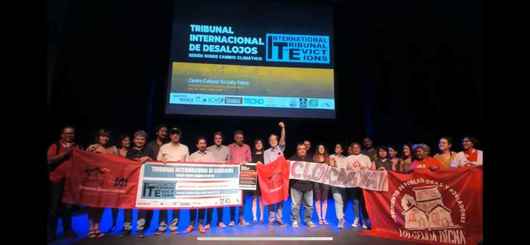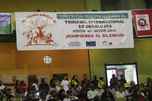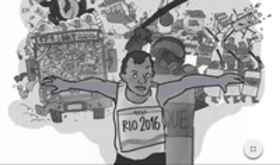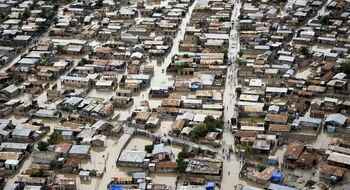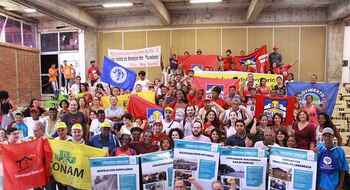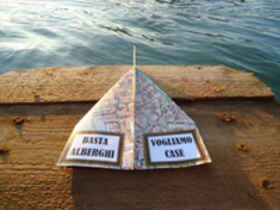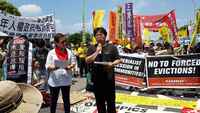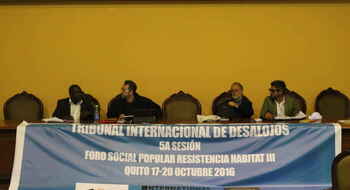What is the International Tribunal of Evictions?
Si conclude sabato 30/09/17 la 6a Sessione del Tribunale Internazionale degli Sfratti con la lettura del verdetto e delle Raccomandazioni e un dibattito che pone sotto accusa l'eccesso di turismo che sta uccidendo i territori e i loro abitanti.
It’s time to speak up: people around the world denounce your tourism-related eviction! This call for solidarity was announced at the press conference to launch the sixth Session of the International Tribunal on Evictions (ITE), which will take place in Venice at the opening of the World Zero Evictions Days in the framework of the International Year of Tourism.
Despite the problems caused by the global crisis, wars and terrorism, tourism has risen to 1,235 billion people in 20162, increasing its pressure on communities, notably in South America, Africa and Asia, without diminishing its hold in Europe and North America. However the tourism industry, in its many forms, is a growing cause of forced evictions because, under the pretext of popularizing exchanges and enjoyment of the world, tourism is turning cities and territories into goods and their inhabitants into extras.
Press release
While the UN World Tourism Organization (UNWTO) celebrates today, 27th September, as World Tourism Day, local communities in many parts of the world see no reason to celebrate. On the contrary: From India and Sri Lanka, from Kenya, Argentina and Italy, people affected or threatened by evictions related to tourism are gathering in Venice for their cases to be heard by an International Tribunal on Evictions (ITE), launched by the International Alliance of Inhabitants (IAI).
There are at least two good reasons for choosing Venice as the site of ITE Session on tourism.
First. Venice is one of the saddest examples of the pressure caused by tourism: this unique city, subjected to policies prioritising the tourism industry, has experienced massive dislocations - effectively evictions through economic methods - that has seen its population reduced to less than 54,000 in 2017 compared to 175,000 in 1953. Meanwhile, Venice is undergoing growing tourism pressure with 9 million overnight tourists and 24 million commuter visitors in 2016.
Interview with Soha Ben Slama, International Alliance of Inhabitants (IAI)
By Christina Kamp
Tourism may play a major role when people face dislocation from their homes. With an international tribunal to be held in Venice at the end of September, the International Alliance of Inhabitants (IAI) will draw attention to processes of displacement and evictions caused by or closely linked to tourism development.
Watch the videos
of the session of the International Tribunal on Evictions, organized by the International Alliance of Inhabitants together with its partners in parallel to COP 25 in Santiago de Chile and Madrid from 5 to 8 December 2019.
The live streaming, the presentation of the cases judged, the interviews with the protagonists, the reading of the Final Preliminary Recommendations.

